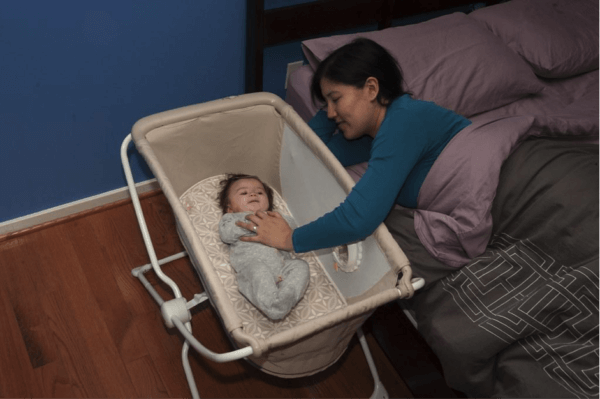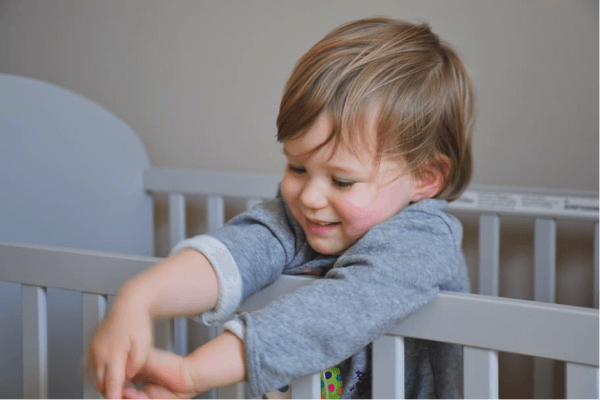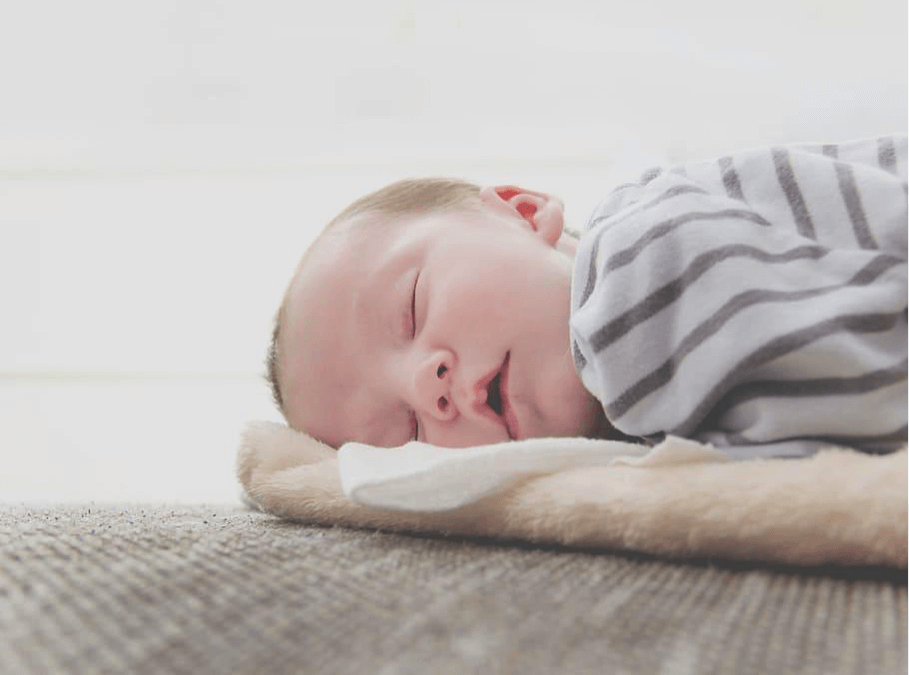Co-Sleeper Vs. Bassinet: Which Is The Ideal Bed For Your Baby?
Your baby is coming soon, so it’s time to get a baby sleeper. What should you choose between a co-sleeper vs. bassinet?
The main difference between the two products is that while the co-sleepers keep your baby at hand, the bassinets are portable and easier to use.
Which suits your child better? The side-by-side comparison in this post will help you make up your mind. Let’s check it out!
What Is A Co-Sleeper?
Many parents like to sleep near their babies without the concerns of bed-sharing, and co-sleepers are a fantastic option.
This approach allows new parents to place their infants next to their beds and monitor them all the time.
Thanks to the co-sleeper, you can easily attend to your infant throughout the early months for regular feedings, diaper changes, burpings, and wake-ups.
What Is A Bassinet?
Bassinets come in a variety of sizes and forms. Some models are foldable, allowing you to save space.
These products are often a less costly alternative to cribs that you can place near your bed or relocate to another room.
You will find this design breathable, small, and secure, thanks to the mesh walls surrounding it.
Sometimes, they have a canopy for extra protection from insects. You can convert them into rockers as well.
Differences Between Co-Sleeper Vs. Bassinet
Every parent has to struggle with sleep issues. It’s one of the most difficult aspects of parenting a baby.
Choosing the ideal sleeping arrangements for you and your child is one solution to decrease stress during this time.
Here is a rundown of the differences between two of the most popular sleepers: co-sleepers and bassinets. Please check carefully and choose your favorite.
Convenience
Co-sleepers simplify everything for you since it reduces the need to leave your bed to soothe or feed your baby. Breastfeeding mothers are likely to benefit the most from these designs.

- Breastfeeding mothers will love co-sleeping beds (Link)
Portability
A bassinet is significantly easier to move from room to room while keeping your newborn nearby.
This sleep accessory will not be an issue for you if you don’t have a lot of space. It’s light, portable, foldable, and takes up minimal room.

- Bassinets are easily portable (Link)
Closeness
Co-sleepers bring mom and her baby so close together, enhancing bonding and closeness.
Breastfeeding mothers will like this feature because it eliminates the need to go far for feeding times at midnight.
Meanwhile, even when you place the bassinets next to your bed, there is a wider distance from you to your baby.
Space
In terms of space, both products come with some drawbacks. Although an in-bed sleeper looks more convenient, it limits your bed space.
Most beds aren’t big enough for two adults with an in-bed sleeper. Moreover, this model can be quite big. If you want to get out of bed, you have to move to the end.
On the other hand, bassinets take up some floor space despite their foldability. So, make sure that you plan your room effectively to accommodate this item.
Sleeping habits
When utilizing a co-sleeper, parents frequently encounter poorer sleep quality and a more difficult time educating their baby on self-soothing practices.
How about the bassinet? This bed gives your child the opportunity to sleep and feed independently. He or she doesn’t rely on the parents, forming a good habit from a very young age.

- The sleeping habit is an important factor (Link)
Time uses
When is baby too big for bassinet and co-sleeper? Your baby may outgrow both. When he or she reaches the age of one, it’s time to upgrade to a crib.
In general, both of the beds are wonderful short-term investments. However, if you have a crib, they are not very necessary.

- A crib is a long-term investment (Link)
Comparison table
We have compared the two products in important terms. Now, let’s summarize their differences.
|
Criteria |
Co-Sleeper | Bassinet |
|
Convenience |
Good |
Moderate |
|
Portability |
Moderate |
Good |
|
Closeness |
Good |
Moderate |
|
Space |
Requires large bed space |
Requires large floor space |
|
Sleeping habits |
Dependent on parents |
Independent of parents |
| Time uses | Limited |
Limited |
Pros And Cons Of Co-Sleeper And Bassinet
Every product comes with its own set of benefits and drawbacks. Make sure that you check both sides of your chosen item before buying it.
Co-sleepers
Pros:
- Convenience: You don’t need to install any extra bed in your room.
- Closeness: You can create an intimate bonding with your newborn.
- Functionality: These models are functional thanks to the adjustable height.
Cons:
- Poor sleeping habit: Your child tends to rely on you.
- Limited use: It works best for babies under the age of one.
Bassinets
Pros:
- Portability: You can move the bed around whenever you want.
- Good sleeping habits: Your newborn can learn about independence soon.
- Comfort: These units are breathable and secure due to the mesh walls.
Cons:
- Limited use: When your child can sit up, it’s time to change to a crib.
- Distance: You have to move out of your bed to reach your baby.
What Should You Choose?
Knowing the benefits and drawbacks of each product will make things easier for you to decide which is the better option.
If you’re still unsure, consider your needs and make your selection thoughtfully. Because no one understands your baby better than you, you are the only one who can make the call.
Co-sleepers are an excellent solution if you like sleeping with your infant and are aware of the hazards of bed-sharing.
Additionally, if your child is really sensitive, young, or you are a breastfeeding mother, co-sleepers will certainly come in handy.
On the other hand, if your child sleeps through the night and you’re afraid of him or her forming bad sleeping habits, a bassinet should be your way to go.
Final Words
We hope this article has helped you decide whether a co-sleeper vs. a bassinet is perfect for your child.
Remember that detailed research and your parental instincts are the keys to making the best decision.
If you have any questions, please feel free to ask. Thank you for reading!

